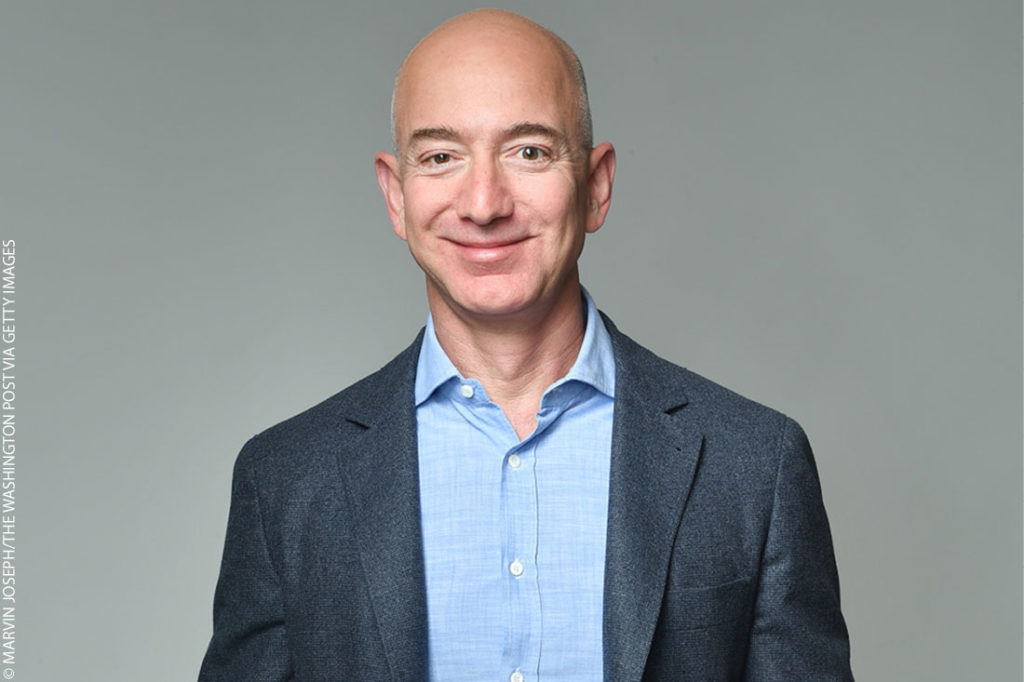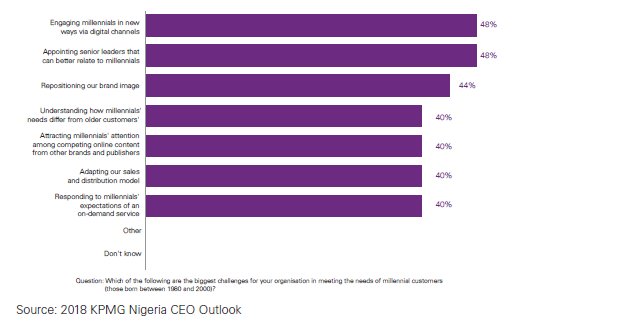
The story of Jeff Bezos and the rise of the largest online retailer in the world isn’t a new one, but it has staying power. In an age where business is hyper-focused on the next, newest, brightest idea, Amazon dares to rest its future on a set a principles that were written in 1997 when the company first went public. Bezos, with a net worth of nearly $130 billion, has rarely strayed from those ideals, and it’s earned him the title of Richest Person in History. Since then, he’s forayed into a variety of industries including health care and space exploration. About his first brainchild, Bezos says to Brad Stone, author of The Everything Store: Jeff Bezos and the Age of Amazon:
“If you want to get to the truth about what makes us different, it’s this: We are genuinely customer-centric, we are genuinely long-term oriented, and we genuinely like to invent. Most companies are not those things. They are focused on the competitor, rather than the customer. They want to work on things that will pay dividends in two or three years, and if they don’t work in two or three years, they will move on to something else. And they prefer to be close followers rather than inventors, because it’s safer. So if you want to capture the truth about Amazon, that is why we are different. Very few companies have all of those three elements.”
Focusing on the long term has always been at the cornerstone of Bezos’ empire state of mind. Beyond that, here are some key principles he employs.
1. Surround yourself with the best possible team.
Amazon has a notoriously lengthy hiring process. Potential employees can expect to submit SAT scores and answer questions such as, “How many gas stations are there in the U.S.?” The answer isn’t supposed to be correct, rather it’s intended to promote critical thinking skills.
“Every time we hire someone, he or she should raise the bar for the next hire, so that the overall talent pool is always improving,” Bezos says.
Employee evaluations happen in real time, rather than at quarterly or annual intervals. Rating software allows peers to evaluate, congratulate and even critique each other publicly.
Consider implementing a more human and live-time evaluation process into your workflow. Entrepreneurs, reach out to your peers and trusted friends—ask for candid feedback early and often.
2. Learn from your mistakes.
Amazon has famously failed more than a few times. To compete with eBay, Bezos once launched its own version of marketplace bidding. It flopped. But it also paved the way for Amazon Affiliates, allowing private sellers to use the site, shipping and even storage facilities to sell their own goods.
More recently was the Amazon Fire Phone, which was widely considered a publicity stunt. Without failure, innovation could never be possible. But with innovation comes misunderstanding, as Bezos is known for discussing. He considers it important enough to include in the 14 leadership principles listed on Amazon.com: “[Leaders] look for new ideas from everywhere, and are not limited by ‘not invented here.’ As we do new things, we accept that we may be misunderstood for long periods of time.”
Learning from failure is easy to preach and harder to practice. Remind yourself of The Amazon Story and its many failures when you’re struggling with a decision of, should I?
3. Stay frugal.
Frugality is a near-direct opposition to modern big business practices. Bezos has preached and practiced it from the beginning. A now-famous picture depicts Bezos sitting behind a desk made out of a door propped up on two-by-fours. Amazon was already a publicly traded company at the time. Doors were simply cheaper than traditional desks and Bezos always had a thing for symbolism.
An upgraded version of the desks are still used in the Seattle headquarters today, and miniature versions are given out as prizes for cost-cutting innovations. “Accomplish more with less,” Bezos says. “Constraints breed resourcefulness, self-sufficiency and invention. There are no extra points for growing headcount, budget size or fixed expense.”
No, you don’t necessarily need to go buy some door desks, but consider where you can cut some unnecessary spending. A short-term perk or comfort could hurt you in the long run.
4. Stand firm.
Only in recent years has Bezos graced the media with social appearances. For many years, he was content to work behind the scenes—a kind of “head down, work hard” mentality. His recent social emergence speaks to an evolution of sorts. Bezos understands that in order to stay relevant and growing, you must be willing to adapt. But you must also know when to draw the line. For him, that means sticking to the big vision while allowing the smaller moving parts to fluctuate. For Bezos, compromising on customer experience was never an option. Once, he almost shut down an entire email marketing division after an embarrassing customer email was forwarded directly to him. That one email sparked a marketing overhaul.
As he writes in the Amazon Leadership Principles, “Leaders have conviction and are tenacious. They do not compromise for the sake of social cohesion. Once a decision is determined, they commit wholly.”
Make a list of your big-vision items. Frame it and keep it accessible. Those are your uncompromisable items. Everything else is negotiable.
5. Think big.
Amazon was never intended to just be an online bookstore or even just an online retailer. Books just happened to be the easiest entry into the marketplace at the time. And for Bezos, Amazon was just the beginning. In 2000, he secretly founded Blue Origin, a space exploration company, to fulfill his ultimate dreams of not only exploring deep space, but eventually colonizing other planets as a backup option for Earth.
Think about your dreams versus the tools you’re using to get there. Don’t confuse the two, and don’t settle for the easier option.
Related: Jeff Bezos’ Rules to Live By






